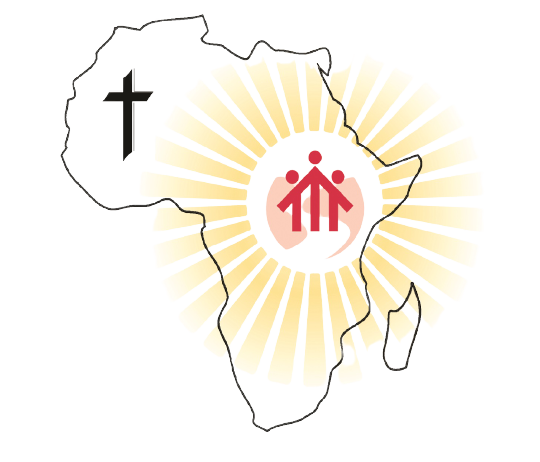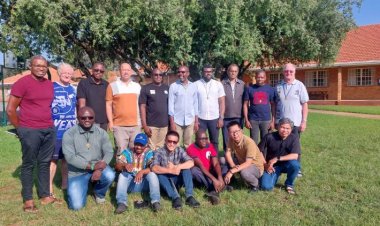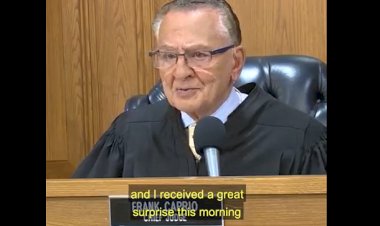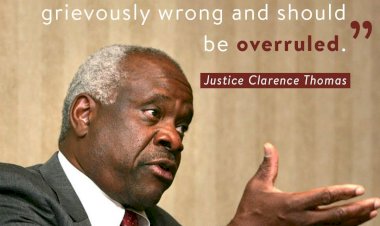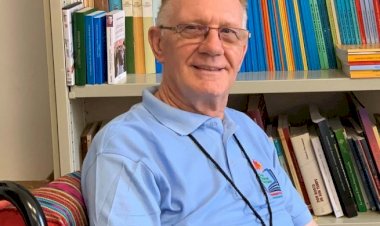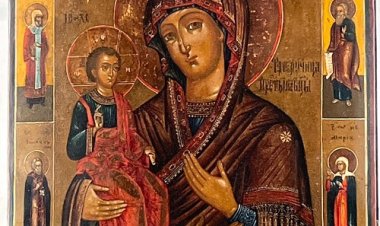Don Ivo Coelho comments on GC28 and formation in the congregation
Interview regarding GC28 and Formation of Salesians
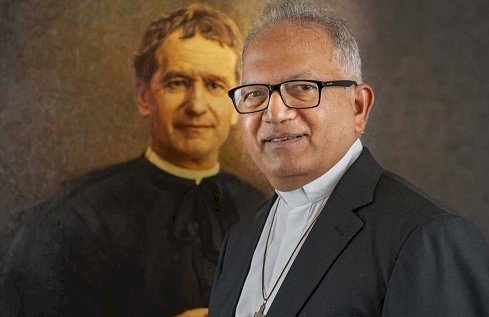
Don Ivo Coelho comments on GC28 and formation in the congregation
(ANS – Rome – Sept 2020) - The 28th General Chapter confirmed Fr Ivo Coelho in his position as General Councillor for Formation, to which he was called in 2014. After six years of activity, he still has important objectives that he intends to pursue to promote the quality of formation of today's Salesians. Today he illustrates the path followed and the prospects for the future.
What do you bring from the GC28 experience with you?
When I think of GC28, the first thing that comes to mind is the presence of the young people with us. It was wonderful that they made it: they took the risk to come, in the midst of the pandemic and problems with travel. They were a gift to us, and they in their turn discovered something new about us. There were two moments when they spoke to the Chapter assembly, and there was a difference between the two moments. Not in what they said – they were always frank and often provocative – but in the attitude. By the end of the week, what they said came from having lived a unique community experience with Salesians from all over the world, and it was clear that they had been touched. They saw that somehow it was possible to be so different and to yet live and work together. Their own experience of trying to put together a “message” for us had been really challenging – and it made them appreciate what they saw among the Salesians. We, in turn, got a direct glimpse of what young people feel and think and say – though, I must say, that I for one was very deeply conscious that this particular group of young people represented only one particular section of the young – those who are in deep and profound contact with us. They kept telling us: we need you, Salesians: not your work, but your presence with us, your walking with us. But there are, I am sure, plenty of other young people who are quite far from us, and those represent a very different kind of challenge. But from these young people, the ones who came to the Chapter, their message was clear: we want you with us. The Rector Major has rightly spoken about the sacrament of presence. Salesian presence is not something instrumental, it is not “for the sake of something else” – it is an anticipation of eternal life. “Salesian presence is a concrete mediation of the presence of ‘God-with-us’; and in some way we can say that it is an anticipation of Jesus’ prayer to the Father for all of us: ‘Father, I desire that they also, whom you have given me, may be with me where I am’ (Jn 17,24). This ‘being-with’ constitutes the heart and essence of eternal life: being with God and with all our brothers and sisters.” (AGC 421 35) For us Salesians who are so happy to “do things” and to “keep busy,” it is wonderful to realize the incredible wealth that lies at the heart of our charism: that our presence among the young is not only the way but also that to which God is leading us.
The other thing I remember about GC28 is, of course, that we were not able to finish it: it was the Chapter that was marked by the Covid-19 pandemic. But the few weeks we were together was without a doubt an experience of communion. I have seen several General Chapters, and I thank God for the wonderful growth in communion and brotherhood among us. Of course, the last six years for me, as general councillor for formation, brought me into much closer contact with so many confreres from all over the world, and so it was even more delightful to meet again at Valdocco. If communion and presence are the essences of eternal life, then certainly every time we experience communion and are present to one another, we have a little anticipation of eternal life.
In the past six years, what have been the fundamental axes of your work for your Department/the Congregation?
The first great point regards ongoing formation. We became aware that the two “formation” chapters of our Constitutions were written explicitly from the point of view of “ongoing formation.” In other words, when our Constitutions talk about “formation,” they mean “ongoing formation” and not, as many of us still think, “initial formation.” Formation is not something that we “finish” at perpetual profession or at ordination. We are in formation all our lives – simply because formation is our ongoing, daily response to God who calls and speaks to us every day. Formation, in other words, is lifelong. This was the topic of the letter published in AGC 425.
At the very heart of formation understood in this way are two little words in Italian, “fare esperienza,” which in English have been translated as “learning by experience.” Formation consists in “learning by experience the meaning of the Salesian vocation” (Const. #98). It is not just experiencing; it is learning by experience. And what is this learning by experience? It is the capacity to look at what we have experienced and to listen to what the Spirit is telling us through it, as #119 tells us: “Living in the midst of the young and in constant contact with working-class surroundings, the Salesian tries to discern the voice of the Spirit in the events of each day, and so acquires the ability to learn from life’s experiences.” If I can learn to live like this, in a permanent attitude of discernment – what Pope Francis calls the “contemplative look” – I am in ongoing formation. That is why #119 is entitled “Ongoing formation as a permanent personal frame of mind.” And it ends wonderfully: “the Salesian feels it his task to make the best formative use of any situation, and to see it as a favourable opportunity for growing in his vocation.” It does not matter whether an experience is “good” or “bad” – what matters is to look at it and to listen to what the Spirit is telling us through it.
This brings us to another great “light”: the new way of exercising authority that is in many ways the old way, the way of Don Bosco. The service of authority in the Church is not a one way, top-down affair: the superior who commands and the subjects who obey. “In matters of importance we seek the will of the Lord together in patient brotherly dialogue, with a deep awareness of shared responsibility,” says #66 of our Constitutions. Authority remains authority, but the emphasis is on the dynamic of fraternity – and this for a very good reason, as Pope Francis reminds us: that the Spirit is given to all in the Church, to every baptised member. That is why community discernment is so important. The synod on youth spoke of a synodal youth ministry, and what that meant to say is that young people are not merely objects of youth ministry, they are active subjects (“protagonists” we would say in Italian). Earlier, the synods on the family had insisted on the same thing: that families are active agents and not merely objects of pastoral ministry. A capacity to listen and to dialogue are essential today in the service of authority. Of gods and men, the wonderful movie about Christian de Chergé and his brother monks of Thiberrine, is for me a great example of community discernment. The health emergency that we are living through provides us with ample opportunities to listen with patience to our brothers and to dialogue with faith before coming to decisions.
The protagonism of young people in youth ministry, and the importance of community discernment, cannot but have implications for our processes of initial formation. The best way to form our young confreres to a synodal kind of youth ministry, is to ensure that the way we deal with them is itself synodal. What is this strange word ‘synodal,’ a confrere asked me recently. ‘Synodal’ basically means ‘walking the way together,’ and a synodal formation is something that is not one way, not top-down, not “you do it because I say so,” but rather something that is able to “touch the heart.” Formation cannot consist merely in external conformity. It is not just a matter of discipline. If formation does not touch the level of convictions, attitudes and motivations, it is a waste of time. If formation does not change the root of my being, the place “from which I live,” it is a sounding gong and a clashing cymbal.
Dialogue is the great way to the heart. We meet our confreres in formation at the present stage of their freedom, and with patience, we engage in conversation with them. We earn their confidence, knowing that confidence cannot be imposed. Don Bosco’s Letter from Rome – written from what is now the Sede Centrale – is a fundamental text not only for youth ministry but also for formation. That is why it feels so right to say that our model of formation is the Preventive System.
In the light of all this, it is obvious that we have been insisting on the formation of formators. Someone was saying recently that all Salesians should also be formators, and there is truth in this – especially if accompaniment regains the central place in youth ministry that it had for Don Bosco. However, the Church insists that today common sense is not enough, if we are to offer a good service of formation. Formators need to be prepared in some extra way, most especially w.r.t. their own growth. “There is nothing so healthy for a formee as a healthy formator,” someone said to me many years ago, and that remains so profoundly true. Formators need to take care of themselves, their own spiritual, emotional and Salesian health. The School of Accompaniment that we want to offer hopes to impart not only skills in Salesian spiritual accompaniment but also help for the ongoing personal health of the formator.
Finally, another of the great points in the last sessennium, has been the attention to the Salesian consecrated identity. GC24 insisted so much on the sharing of Don Bosco’s spirit and mission with the laity. It is also very clear that Salesians do not bury their consecrated identity within the shared mission. As the documents of the Church (like Christifideles laici) have been insisting, the Church is a communion of identities, where identity is understood not in separation but in relation to other vocations in the Church. Just as the deacon is an icon of service and certainly not the only one in the Church who is called to serve, so also consecrated people ought to be reminders that all of us are called to something wonderful, to the life of God, to eternal life. When we were young, religious life was practically identified with fidelity to the vows. Today, the Church and the Congregation are discovering that it is much more, that it is a way of following the Lord. The consecrated person feels called to follow Jesus even in his very particular choices, as for example that of not being married. There is a beauty and a joy here that we are called to discover, and above all to communicate and to live.
I believe that the more we discover and live the consecrated aspect of our Salesian vocation, the clearer will become the two ways of living our vocation, that of the Brother and that of the Priest. The more we appropriate the Salesian and consecrated aspects of our vocation, the better we will discover what is specific to the Priest or to the Brother. And I think the Brothers are well on the way to a rediscovery and reaffirmation of their Salesian consecrated identity. The question is how to share this rediscovery with the Priest confreres and with the very large number of young Salesians, especially in the regions of South Asia and Africa-Madagascar, who aspire to the priesthood. We are first Salesian religious and only then Priests or Brothers: there is no doubt about this.
In six years, what do you dream of for your Department?
Let me talk here of two great ideas that I have not yet mentioned.
The first is what we could call pastoral accompaniment. One of the great directives given us by GC28 and by Pope Francis, is that formation is not merely for the mission but in the mission. But how are we to translate this great idea into living praxis? I believe that merely quantitative increase of apostolic activity is not enough. Let me explain that. It is not enough to merely increase the amount of time dedicated to apostolate. It is not even enough to close down our formation houses and insert formees into pastoral communities, in an effort to imitate Don Bosco who formed his early Salesians in the midst of the young. It is important to take a note from the Convitto Ecclesiastico, where Cafasso not only accompanied young priests like Don Bosco to the prisons and other places, but also helped them reflect and learn from their experience. In other words, experience alone is not enough: we need to ensure that there is reflection and learning from experience. This is what we could call ‘pastoral accompaniment.’
Pastoral accompaniment is probably being done, in some way, during the friendly talk with the Rector. It could very profitably be done also in small groups, with the help of the pastoral coordinator. It consists not so much in reporting “what was achieved” but rather “what happened to me” during my hours in the apostolate. When someone is able to do this kind of sharing, an experienced guide will be able to help him – and the group – to “dig deeper” and so arrive at the level of convictions, attitudes, motivations. There are “human technologies” that can help formators learn this kind of accompaniment – I am thinking of courses such as “Clinical Pastoral Education” (CPE) that are available in several parts of the world, and that some bishops’ conferences have made mandatory for their seminarians. Perhaps we ourselves need to set up small training workshops in this regard. I am convinced that this will be a great step forward to that “formation in mission” which GC28 has been insisting upon.
Pastoral accompaniment is simply one way of putting into practice the “learning by experience what the Salesian vocation entails” which is at the heart of the formation process. The skills involved here can be, in fact, applied across the board: to community life, the intellectual dimension, the experience of prayer, the living out of the vows, in short to the whole experience of following the Lord in the way marked out by Don Bosco. A formator today has to acquire this kind of capacity. Obviously, therefore, it is vital to guarantee the formation of formators, and this will continue to be one of the great emphases of the current sessennium.
The other great point has to do with the shared mission. The fact is that, in many parts of the world, a large number of our lay collaborators belong to other faiths or even to no faith at all. Is it possible to share Don Bosco’s spirit and mission with them? To what extent? The directions opened up by GC24 are still brilliant and valid, and in addition, there are the openings made by the magisterium over the years. The common bases of the shared mission are our shared humanity and a shared enthusiasm for Don Bosco’s mission, and that is why the mission can be shared even with those who are not baptized. The Church is the sacrament of salvation, the sign of God’s will for all people to be saved. The same Don Bosco who had very hard things to say about certain religions, was also the man who said: It is enough for you to be young for me to love you.
If “It is enough that you are young”, the Salesian of today must allow his heart to reach out to all the young, and also to all those whose hearts beat for the young, regardless of colour, caste/class and creed. In this he is a faithful disciple of the One who walked the length and breadth of Galilee and Judea, constantly breaking boundaries and reaching out to touch the hearts of Jew and Gentile, saint and sinner, oppressor and oppressed.
Obviously, the great emphases of the last sessennium cannot fall by the wayside. Given that, to a large extent, they are enshrined in Animating and Governing the Community and Young Salesians and Accompaniment, our two major publications launched officially at GC28, much of the current sessennium will be fruitfully spent trying to appropriate and absorb the insights and directions contained in them. In addition, there is the task set by the Rector Major, of revising the Ratio and the accompanying Criteria and Norms. The revision of this document that dates back more than 20 years, and which is one of the most authoritative documents in the Congregation, is also a way of ensuring that the gains of the last sessennium are enshrined in the Ratio.
